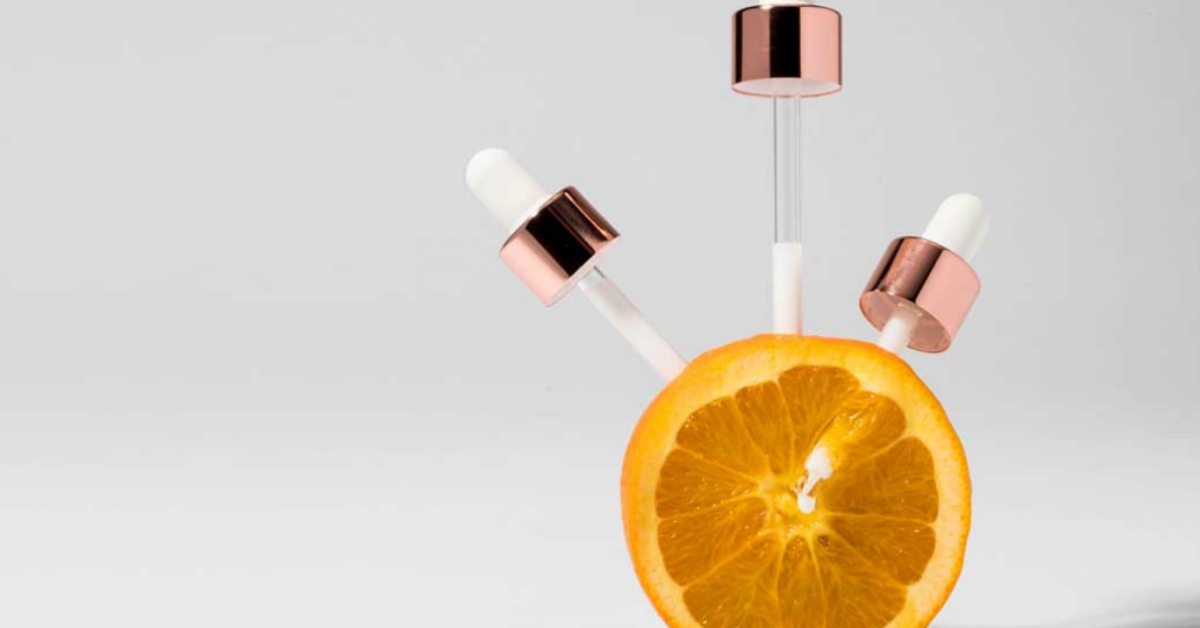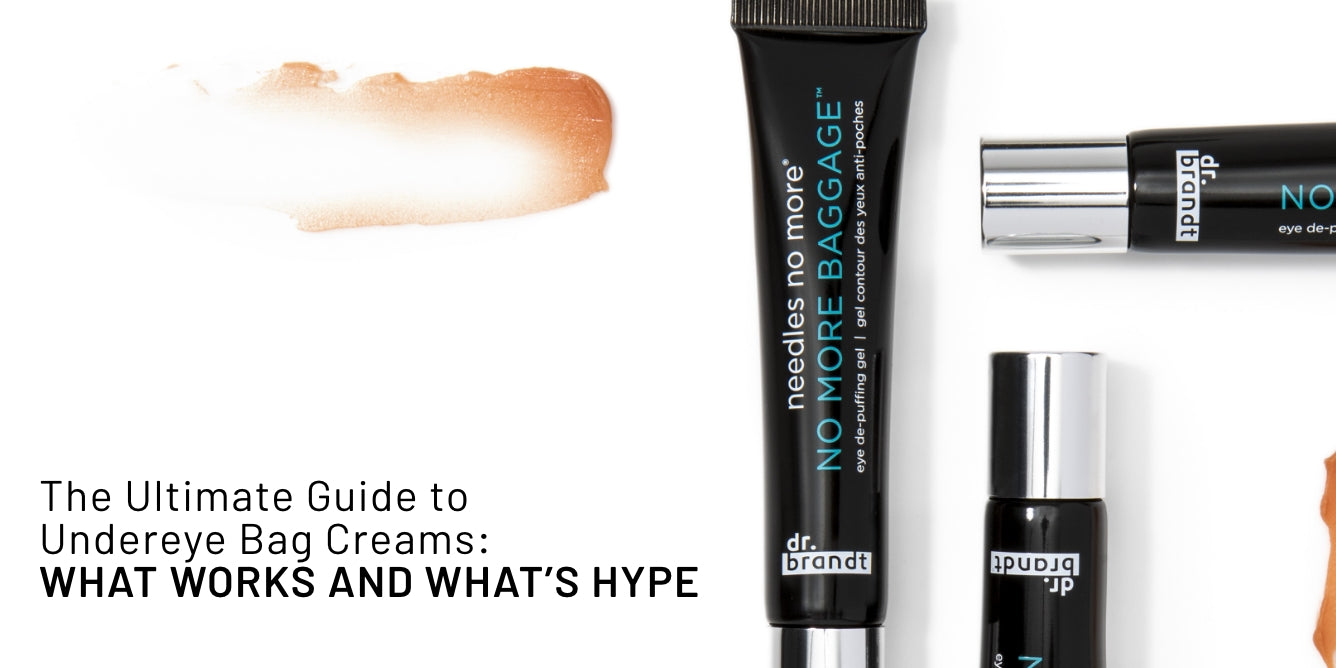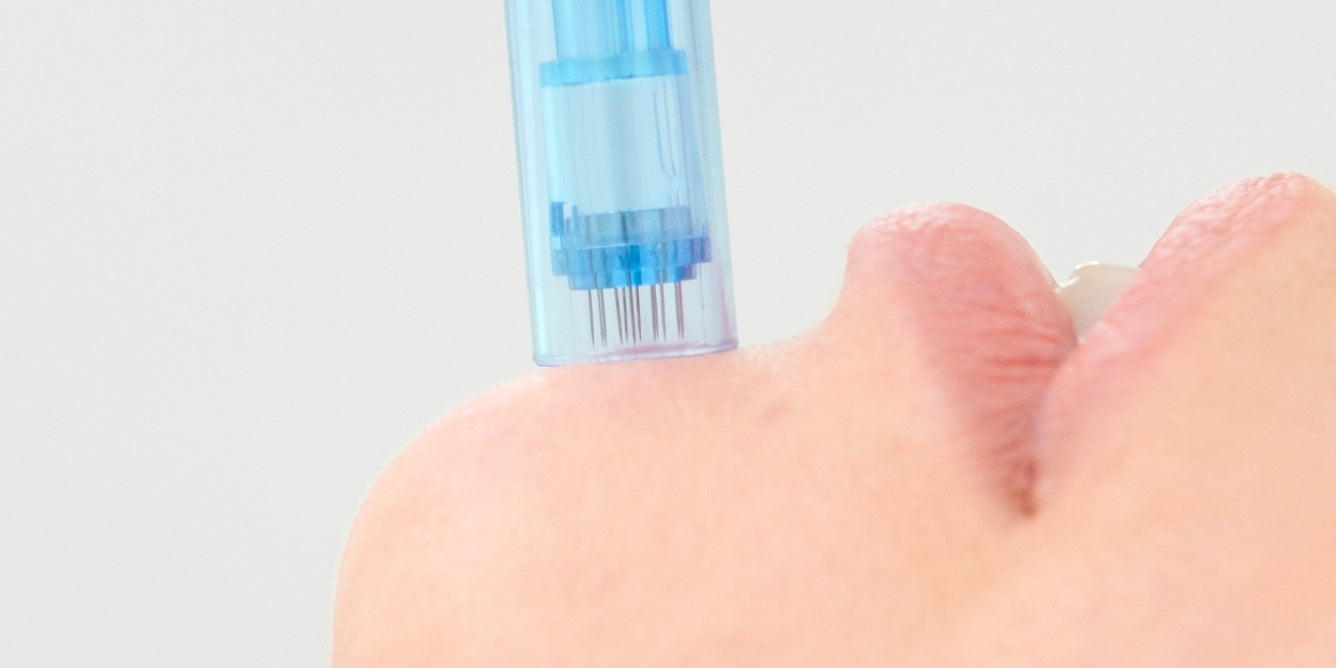
In the worlds of wellness and beauty, arguably no nutrient enjoys as much clout - or consensus - as vitamin C. As an ingestible, this powerful antioxidant has long been hailed by experts as a proven way to boost your immune system and protect against illness. These days, it's enjoying renewed popularity as a beauty ingredient in serums, moisturizers, and other skin care products. No surprise there: applied topically, vitamin C offers some compelling beauty benefits, from a brighter complexion to protection from free radicals (read: fewer fine lines and wrinkles). That said, there are at least 20 different forms of vitamin C in topical formulations - and not all offer the same level of stability or efficacy. THD Ascorbate is arguably one of the best ingredients. Below, Skin Advisory Board member and board-certified dermatologist Dr. Shasa Hu explains why.
But first, what can vitamin C do for your skin?
As mentioned, vitamin C is a powerful antioxidant with great potential for giving you brighter, healthier, and more visibly youthful skin. Numerous studies have shown that vitamin C is capable of 'scavenging' or neutralizing molecules responsible for oxidative stress—particularly that caused by sun exposure. In addition to its ability to minimize signs of photodamage, vitamin C is a vital component in the formation and maintenance of collagen, making it a valuable anti-aging tool. Interestingly, we can see a great example of the effect of vitamin C on skin by looking at what happens when there's a severe lack of it: in scurvy, a disease caused by lack of vitamin C, patients often present thin, sagging, easily bruised skin.

Vitamin C in skincare: what form is best?
Vitamin C comes in myriad forms or even as a complex; Tetrahexyldecyl (or THD) Ascorbate is just one of them. Another form you've likely already encountered is L-Ascorbic acid, which is one of the most widely available and best-known analogs of vitamin C. We'll go into a little more detail on L-Ascorbic acid vs. THD Ascorbate in a bit. For now, the key thing to know is that different types of vitamin C possess different qualities that make some more effective than others depending on your skin health goals, your existing routine, and the products you use. Generally speaking, the key points of difference between various forms of vitamin C boil down to stability, penetration, and potential for irritation.
Tetrahexyldecyl Ascorbate vs. L-Ascorbic acid: which is better for skin?

By now, it should be clear that there are myriad benefits to incorporating vitamin C into your skincare, from wrinkle repair to improved skin texture. Exactly how to do so is another question. When buying skincare products that contain vitamin C, from moisturizers to anti-aging serums, it's always a good idea to do your research. Most topical vitamin C preparations contain L-Ascorbic acid, a naturally-derived form of vitamin C from fruit and botanical extracts. But beware: ‘natural’ is not a synonym for ‘better’ or even ‘safer’ (as anyone who's ever tried to use pure lemon juice as a toner will attest).
In fact, L-Ascorbic has several limitations due to its hydrophilic (water-soluble), unstable nature. Its penetration into skin is limited by the fatty acid content of your stratum corneum (the outermost layer of skin). L-Ascorbic acid is also what's known as a 'charged molecule', which further limits its ability to be absorbed by your skin. These limitations are why products containing L-Ascorbic acid tend to have a low pH (under 3.5). The lower (or acidic) pH has the benefit of increasing its stability and permeability. The downside: this lower pH can lead to irritation in those with sensitive skin.
THD Ascorbate, however, has the advantage of being lipophilic (fat-soluble) and more stable at a higher pH. That means two things: one, THD Ascorbate tends to be better at penetrating skin, delivering the benefits of vitamin C where they're needed most. Two: it maintains its stability at a higher pH, which means it's less likely to produce irritation, even in sensitive skin.
What are the benefits of THD for your skin?
As with many other forms of vitamin C, THD Ascorbate offers the following benefits:
- Antioxidant: fights free radicals
- Brightening: brightens skin tone
- Firming: promotes skin's natural production of collagen
However, multiple studies point to THD Ascorbate being one of the better forms of vitamin C, not only for its increased stability and penetration, but for its increased antioxidant activity and effectiveness in promoting collagen production. One study found that THD Ascorbate surpasses the penetration of L-Ascorbic acid by threefold at the same concentration, and maintains a higher penetration rate, reaching both the epidermis and dermis. But let's delve a little deeper into the benefits:
Minimize fine lines and wrinkles
Because of its biological effects on fibroblasts (cells that secrete collagen), topical THD Ascorbate has been shown to improve the appearance of fine lines, wrinkles and sun-damaged skin. When combined with a broad-spectrum SPF and retinol, the improvement in fine lines is even more visible.
Prevent dry skin
By promoting improved fibroblast function, THD Ascorbate also enhances hydration in dry skin, as shown in multiple clinical studies exploring THD Ascorbate's efficacy as an active ingredient. This is likely due to improved nutrient transfer.
Keep acne under control
Because of its ability to 'scavenge' free radical damage to cells, THD Ascorbate can be beneficial for acne-prone skin. It can help simultaneously unclog congested pores, mitigate inflammation from acne breakouts, and lighten hyperpigmentation (dark spots) that can sometimes result from acne scarring.
Repair sun-damaged skin
As a potent antioxidant, THD Ascorbate enhances the skin’s natural SPF by boosting resistance to UV damage. THD Ascorbate also helps to decrease melanin synthesis. Clinical studies show that consistent THD Ascorbate application improves the look of pigmentation, sun-spots, and melasma. That said, a vitamin C-based skincare product can make skin more sensitive to UV, so be sure to apply sunscreen (SPF30 minimum) every day as the last step in your skincare routine.
How to incorporate THD Ascorbate into your routine
Similar to other vitamin C analogs, THD Ascorbate will provide the most benefits when applied in the morning because of its ability to mitigate UV damage. To maximize the penetration of THD Ascorbate, it should be ideally applied as a serum or light lotion, before your heavier moisturizers, and always followed by sunscreen. As mentioned above, THD Ascorbate is generally well-tolerated by those with sensitive skin. Combining THD Ascorbate with retinol can help maximize both products' anti-aging benefits. While THD Ascorbate is a very stable form of vitamin C, as with most skincare products, it's still a good idea to store it somewhere cool, and out of direct sunlight.




Leave a comment (all fields required)